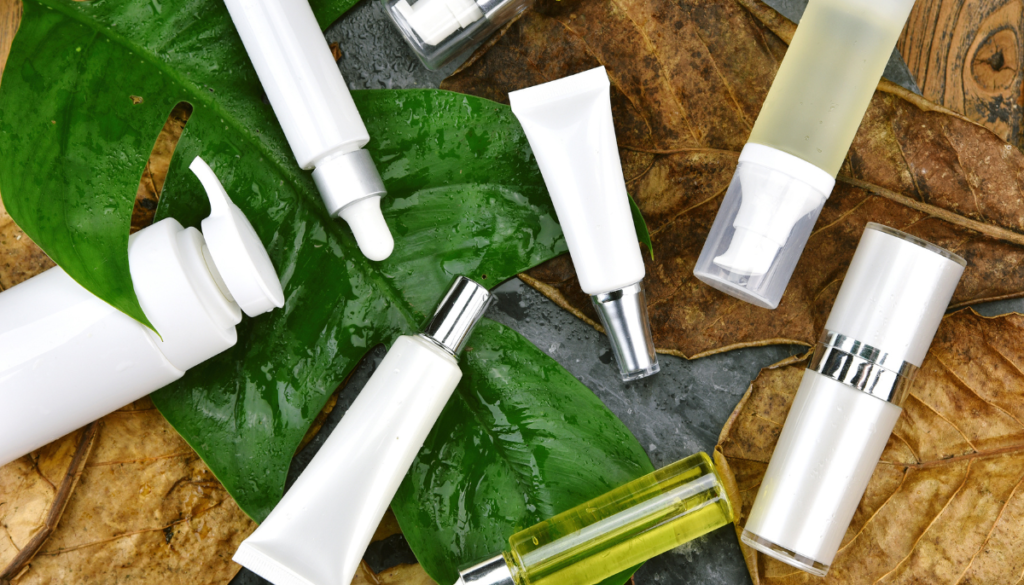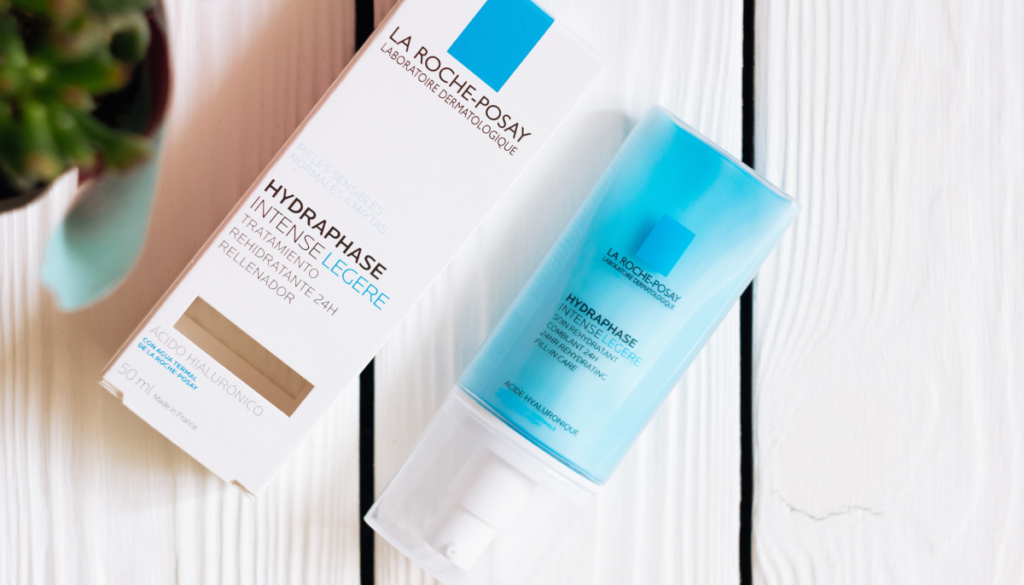There are so many reasons to buy eco-friendly products. You might be looking for more natural ingredients and fewer chemicals because you’re worried about the damage those chemicals might do to your skin.
Maybe you value products that are ethically sourced and sustainable because you care about the environment, and you know that those products contain eco-friendly ingredients. Or, maybe you’re in both camps, and you want to choose eco-friendly products for both the sake of your skin and the environment.
With a little bit of know-how, you can put your money where your mouth is (and where your values are) and buy skincare products that put the environment first. Learn about why eco-friendly skincare is beneficial, which eco-friendly ingredients are the most effective, and which products contain those ingredients.
The Problem
Have you ever heard that just because something comes with the label “all-natural” that it’s not necessarily all-natural? That in fact, in the United States, marketers can use the word “natural” any way they want?
Because no one is regulating the word “natural,” marketers do in fact use it however they want. And that’s the key problem with finding eco-friendly products. Cosmetics, including skincare products, are just not regulated well in the US.

This isn’t the case all around the world. In Europe, there’s a much stronger emphasis on consumer safety, so products are more closely regulated. The European Union has banned over 1,000 cosmetics ingredients that they have found to be unsafe. Consumers in the EU can be confident when they’re shopping for skincare products because they know that to reach the shelves, products can’t contain those unsafe ingredients.
However, many products in the US still contain those ingredients, along with others that may or may not be safe. There’s not a standard, definite way to know. According to the Food and Drug Administration, “Under U.S. law, cosmetic products and ingredients, other than color additives, do not need FDA approval before they go on the market.” This lack of regulation means that it’s on you, as the buyer, to check the list of ingredients for harmful substances.
What You Can Do
The best way to make sure that you’re using skincare products that are safe for your skin, and hopefully the environment, is to read through the ingredient list. But, let’s face it – it’s hard to remember which ingredients are toxic, which are safe for your skin, and which are bad for the environment.
Instead of trying to remember what to avoid, it’s a good idea to look out for either products that contain a high amount of an eco-friendly ingredient or to buy from the most eco-friendly skincare brands.
Which skincare products do you really need? Start by finding out what your daily skincare regimen should be.
Establishing a Routine

The most basic skincare routine consists of three steps that almost everyone should do: cleanse at least once a day, moisturize morning and night, and apply sunscreen in the morning.
But you might also have specific skin issues, like acne scarring or under-eye wrinkles. Then, you should probably want to add more products to your routine to help those issues. Remember that if you have serious skin issues, you’ll want to speak with a dermatologist. Make sure you discuss your preference for eco-friendly products during your appointment – that lets the dermatologist know that you’re taking it seriously!
Before we dive into the products, let’s take a look at which natural ingredients are best for your skin.
Why Natural Ingredients?
It’s better to use skincare products with natural ingredients and not chemicals because they’re usually better for the environment (making them eco-friendly). Plus, the effects of many of these chemicals haven’t been studied long-term – so we simply don’t know how these chemicals will really make our skin look (or how their production will affect the environment) long-term.
Coconut Oil
Coconut oil is great for soothing your skin. It’s hydrating and anti-inflammatory. However, it’s important to know that if your skin is prone to acne, coconut oil could contribute to breakouts.
Gotu Kola Extract
While you may have never heard of gotu kola before, this ingredient, which comes from an herb, is natural and can help your skin by possibly boosting collagen production. After a pimple pops, or to help with any wound that needs healing, try applying a product containing gotu kola extract and see if it helps. It may also help with collagen production
Green Tea

Green tea is amazing for so many reasons. Drinking green tea may benefit your health in several different ways, and using products containing green tea on your skin can help. Specifically, green tea contains antioxidant properties that can help with sun-damaged skin and with aging skin.
Sunflower Oil
Sunflower oil contains vitamin E and linoleic acid, which are two ingredients found to be helpful in treating premature aging, wrinkles, and maintaining the skin’s natural barrier. You can directly apply sunflower oil to your skin, but make sure you patch test it first.
Read More: The Best Clean Skincare Brands of 2021
Shea Butter
Shea butter is another fantastic ingredient to look for when you’re shopping for skincare products. It comes from fat that was extracted from shea tree nuts, and it has a high concentration of fatty acids and vitamins. Shea butter has both anti-inflammatory and healing properties. You can look for products containing shea butter in the store, or you can make your own.
Oatmeal
If you ever deal with dry, itchy skin, then start looking out for products containing oatmeal. Oatmeal is known to help with eczema as it contains anti-inflammatory and anti-irritant properties. Keep an eye out for colloidal oatmeal specifically, as it is ground and prepared so that the oats are extremely small, which is what makes it great for blending with water and forming a helpful paste.
Other Ingredients
Other eco-friendly ingredients that are great for your skin include aloe vera, geranium essentials, yucca schidigera, jojoba oil, apple juice, sesame oil, sweet orange oil, and chamomile.
Remember, before you try any ingredient (especially in its purest form) on your skin, you should patch test it first to make sure you don’t have an allergic reaction. While this can seem annoying and time-consuming, it’s especially important to patch test before using a product especially if you’re going to use it in its purest form (like pure coconut oil straight from the jar, for example).
The Skincare Lines

It can be exhausting to try to remember which ingredients are the best for your skin. That’s why sometimes, it’s better to find a brand (or two) that you can trust.
Brands do change their formulas, so it’s important to remember that you should still check the ingredient list from time to time. It’s also smart to follow organizations that have developed their own rating systems for skincare lines.
Take a look at the Environmental Working Group’s Skin Deep initiative, which takes the time to verify that products meet the organization’s strict, scientific standards for transparency and health.
Think Dirty is an app created by a woman with a family history of cancer. She wanted a simpler way to separate products with toxic ingredients from those safe products. You can download the Think Dirty app to scan products before you buy them and see what type of rating they get. It might be a good idea to scan the products you already own, too!
You can also look through Think Dirty’s list of verified brands to get an idea of who you should be buying from. The brand might not be available where you normally shop, so think about visiting new stores or buying online.
Take a look at these skincare lines with products that are good for you and for the environment.
La Roche-Posay

This French brand offers a popular sunscreen, and there’s a reason why it’s so popular. La Roche-Posay can trace its origins back to the 1400s when the benefits of the thermal water at La Roche-Posay were discovered. Now the company goes above and beyond to make sure its products are safe. They have over 25 years of research and 750 studies to back their formulas.
The La Roche-Posay Cicaplast Baume B5 Soothing Repairing Balm contains gotu kola extract, which is one of the natural ingredients you might want to start prioritizing in your routine!
Paula’s Choice
Paula’s Choice is a fantastic skincare brand that stands behind the value of only using the safest ingredients in its products. The company’s website even includes a list of ingredients that they specifically avoid and they are committed to continually evaluating new data and research in order to develop the best products.
Paula’s Choice Skin Balancing Ultra-Sheer Daily Defense Broad Spectrum SPF 30 contains green tea, which can help with sun-damaged and aging skin.
Native
Target shoppers, rejoice! Native has been verified by Think Dirty as a skincare line you can trust. This product’s eco-friendliness goes beyond the ingredient list: even some of their packaging is good for the environment!
“Native’s Plastic Free paper packaging is made from wood harvested from responsibly managed forests. They are donating 1% of Plastic Free sales to nonprofits specializing in environmental stewardship.” This is a brand that cares – about what happens to your skin and to the planet.
Read More: Should You Change Your Skincare Routine For the Fall?












